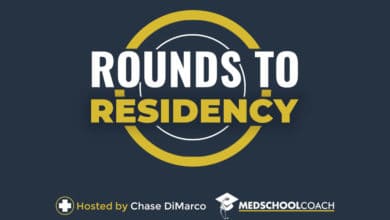Dr. Hochman advocates dealing with addiction using scientifically proven strategies, describing these tactics and how to incorporate them into one’s life.
Dr. Daniel Hochman is a board-certified psychiatrist with a private practice in Austin, TX. He is the creator of a revolutionary online addiction recovery program, selfrecovery.org. Dr. Hochman advocates for using strategies proven through hard science and describes them in ways that are easy to understand and incorporate into one’s life. In this episode, we will discuss how addiction and recovery for patients and medical personnel is changing, and the resources available to everyone.
He believes that good instruction fosters development. Those interested in clinical education must be able to analyze a student’s abilities in a non-judgmental manner and reach them on a personal level. Knowing what is going on in an individual’s life, including your medical learners, is the best way to truly assess a person. He believes creating an inviting and enjoyable environment is much more beneficial than a hyper-competitive one. Use the carrot. Not the stick.
In Daniel’s mind, certain actions by a preceptor or student can tell a lot about their personality. Those that lack respect or are abrasive in their interactions are going to struggle in medicine and in life. It signals that they may not have a true interest, or calling, to the field in front of them. These traits are also much more difficult to alter later on, which can lead to persistent conflicts in the workplace.
On the other hand, a student that makes a lot of mistakes but is applying their full effort does not ring as such a problem in his mind. This individual may be lacking some skills now, but those are easier to develop than altering one’s personality and outlook on life. Those that try and put in the effort have what it takes to be a successful clinician.
Students can also stand out in their psychology clinical rotations by showing up prepared. Know what you want to do, where you are, and where you need to go. Having this plan and sharing it with your preceptor can assure you are both on the same page. Also, when asking for a strong letter of recommendation, these skills and personality traits will allow the preceptor to recognize you more and use those experiences in your letter.
